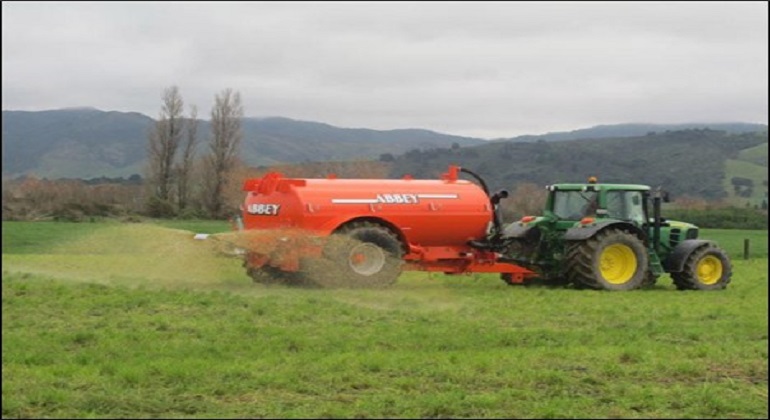Protecting Our Watercourses
Kildare County Council advises Farmers to be mindful of protecting water quality ahead of slurry spreading season
January 12th will mark the reopening of the slurry spreading season in Co. Kildare and there are many legal conditions and restrictions about the manner in which fertilisers should be handled and utilised by the agricultural sector.
These restrictions are enforceable by the Local Authorities and are stipulated in the EU (Good Agricultural Practice for Protection of Waters) Regulations 2022, more commonly known as the GAP Regulations. This legislation puts into practice aspects of the Nitrates Directive, a European wide effort to reduce Nitrate pollution of waters from agricultural Sources.
The GAP regulations are well known to farmers and puts an onus on good farmyard management and the method and manner of the application of slurry/soiled water/ farmyard manure and chemical fertiliser onto land.
There are limitations in relation to ‘buffer distances’, ground conditions, forecasted weather, slurry application equipment, and spreading dates.
Organic fertiliser or soiled water shall not be applied to land within:
- 5m of any surface waters. This distance increases to 10m for a period of two weeks preceding and two weeks following the 1st of October and 12th of January annually.
- 20m of a lake shoreline
- 25m of domestic wells
- 100-200m of public water supplies
Organic and Chemical fertilisers or soiled water shall not be applied to land in any of the following circumstances:
- The land is waterlogged
- The land is flooded or likely to flood
- The land is snow-covered or frozen
- Heavy rain is forecast within 48 hours
- The ground slopes steeply and there is a risk of water pollution having regard to factors such as surface runoff pathways, the presence of land drains, the absence of hedgerows to mitigate surface flow, soil condition and ground cover
Organic fertiliser in the form of slurry must be spread only in the ‘open period’ from January 12th with a closing date of October 1st in Co. Kildare. Farmers are also reminded that Chemical Fertilisers may be spread on farmlands from the 26th of January.
Farmers are also urged to consider the benefits of soil sampling. It is important to know the nutrient status of the soil in order to know it’s fertiliser needs.
By undertaking soil analysis and putting the results into practice, a fertiliser programme can be tailored to the needs of the soil. Repeating soil analysis over time (3 to 5 years) is also critical to monitor the effectiveness of a farm fertiliser strategy.
Local authority staff conduct inspections of farmyards to ensure compliances with the GAP regulations and the facility to cross report any breaches of the regulations or reluctance to address issues of pollution can result in penalties to the basic farm payment.
It is found that the vast majority of the farming community are environmentally conscious and with this in mind the local authority calls on the farming community once again to be particularly mindful of water quality this slurry spreading season.












